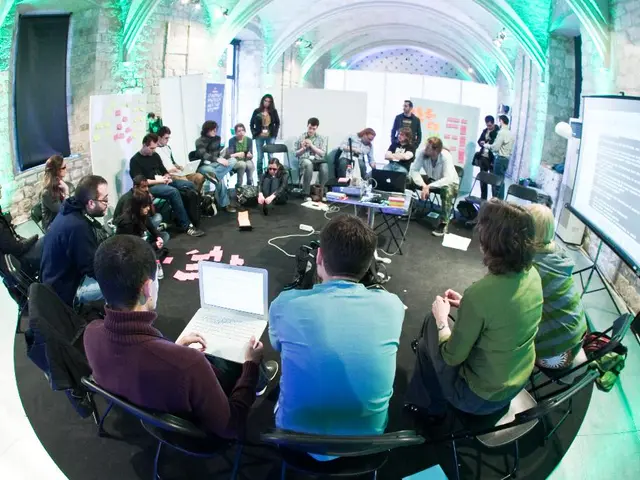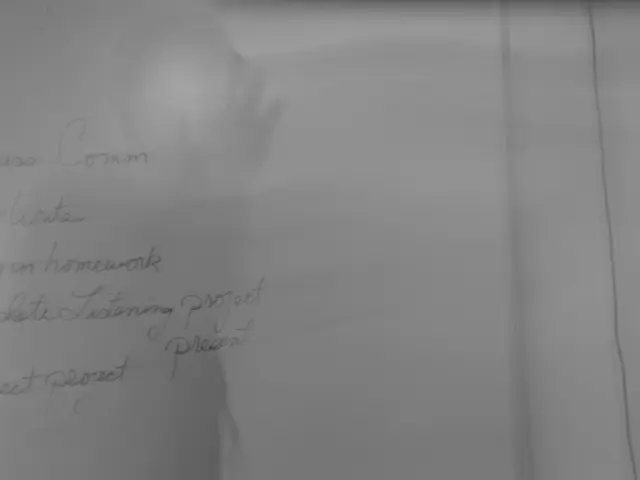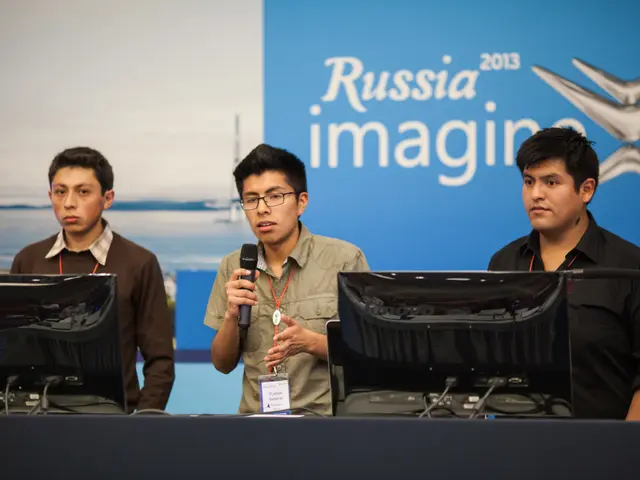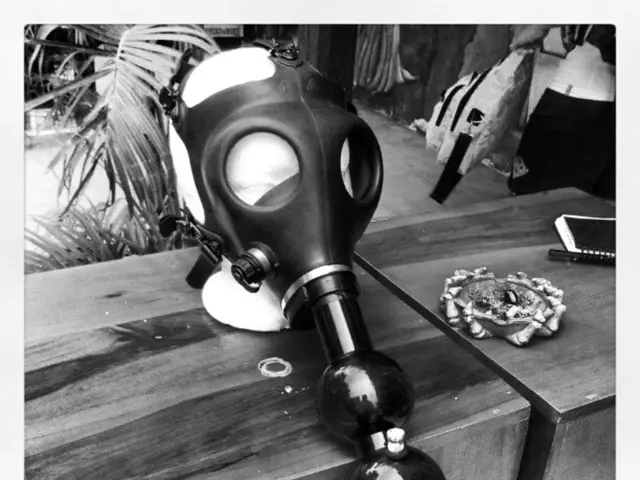Mastering the Art of Avoiding Overused Expressions: A Guide for Refreshing Communication
Stand Up Against Hate: Mastering the Art of Debate in Hangout Hotspots
In the city of Ulm, a transformative event called "Pub Debaters" is making waves. Hosted by the national network "Anti-Racism United," this workshop aims to equip participants with the know-how to combat casual, disrespectful, or prejudiced remarks.
Ulm's Eselsberg citizen center plays host to a gathering of empathetic citizens, consisting of 25 participants, the majority being women. As they file in, nerves bring an air of excitement as they share reasons for attending and the challenges they've faced. Some come alone, while others arrive in pairs, and a few have traveled all the way from Stuttgart. Local resident Ulrike explains her motives, "I'm tired of being taken aback and left speechless in such situations." She recounts an instance of frustration with a friend who spewed bigoted views over the phone. Tonight, however, Ulrike finds solace in the shared experiences. For three intense hours, participants delve into different scenarios, debating more effective responses. The seminar is expertly led by Jasmin Zienck, member of the "Anti-Racism United" alliance, along with Stefan Brandstetter, a pedagogue from Freiburg.
Unveiling the Hidden Bigotry: Daily Life Encounters
Zienck expresses gratitude for the warm reception of the free course in Ulm, impressed by the immediate popularity yet disappointed by the demand for such a seminar. "It's encouraging that people are interested in combating prejudice. At the same time, it's appalling to know that so many people encounter such situations." These exchanges, say the participants, occur in various everyday circumstances - shops, among neighbors, on public transport, within families, friend circles, and more.
Participants receive a conversational toolkit: how to respond, when to respond, and when to seek help when faced with prejudiced statements. Zienck offers essential advice for dealing with hostile remarks in public spaces:
- Access and assess the situation to avoid endangering oneself
- Reach out to bystanders for support and backing
- Refute and distance oneself from harmful declarations, voicing disagreement, and sharing alternative viewpoints
- Make it clear that different opinions exist and combat the passive majority mindset
In an exercise, participants adopt the role of offenders, tossing around prejudiced clichés to better understand their roots. "Quickly and simply," says one participant, surprised. They all agree: Assuming such roles makes it clear how effortless it is to uphold bigotry, while confronting counterarguments presents a greater challenge. "In real situations, I'd have left without saying a word," admits Ulrike. But in this workshop, she acknowledges the importance of standing her ground: "It was enlightening."
Lessons Learned: Speak Up and Empower!
The workshop concludes, leaving participants thoughtful and rejuvenated: "It's comforting to see that I'm not the only one who occasionally feels powerless," shares a participant. Another declares, "It seems apparent that simple questions like 'What do you mean by that?' can already make a difference." Some leave with newfound resolve. "I've realized that I'm still too passive," confesses Ulrike. "I'm going to stand up more and speak out from now on."
Tips for Effective Dialogue (From a "Stand Up Against Racism" Brochure):
- Asking and Questioning: "What do you mean by that?", "Do you truly believe that over 60 million individuals are escaping for fun?"
- Encouraging Empathy and Perspective-Taking: "How would you feel if people talked about you in such a manner?"
- Demanding Data and Facts: "Can you name your source?", "Where can I find the article you mentioned?"
- Providing Counterexamples: "Exactly who (where, when) did this happen to?", "I've had entirely different experiences."
- Changing the Subject: "I suggest we discuss this before…"
- Illustrating Consequences: "If I think about what you're saying, it would imply…"
- Questioning and Highlighting Relativizations: "Are you against homosexuality or not?"
- Introducing Guiding Principles, Values, and Visions: "I, too, aspire for equal access to healthcare services, regardless of race or ethnicity."
Return to the Main Page of Our Show
In the spirit of personal growth and education-and-self-development, the participants found that speaking up against prejudice can lead to empowerment. The workshop revealed the importance of effective dialogue, equipping attendees with tools such as asking questions, encouraging empathy, demanding facts, providing counterexamples, and introducing guiding principles. Such skills are vital in promoting a harmonious society, fostering understanding, and combating bigotry in everyday encounters, from family conversations to public debates.








